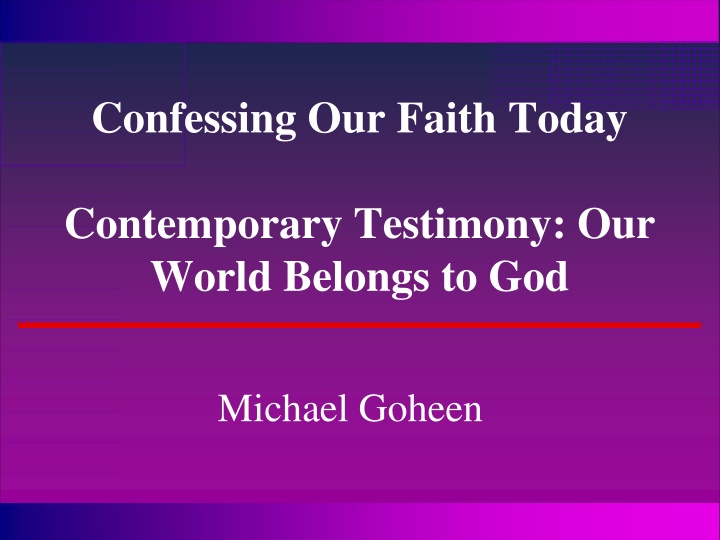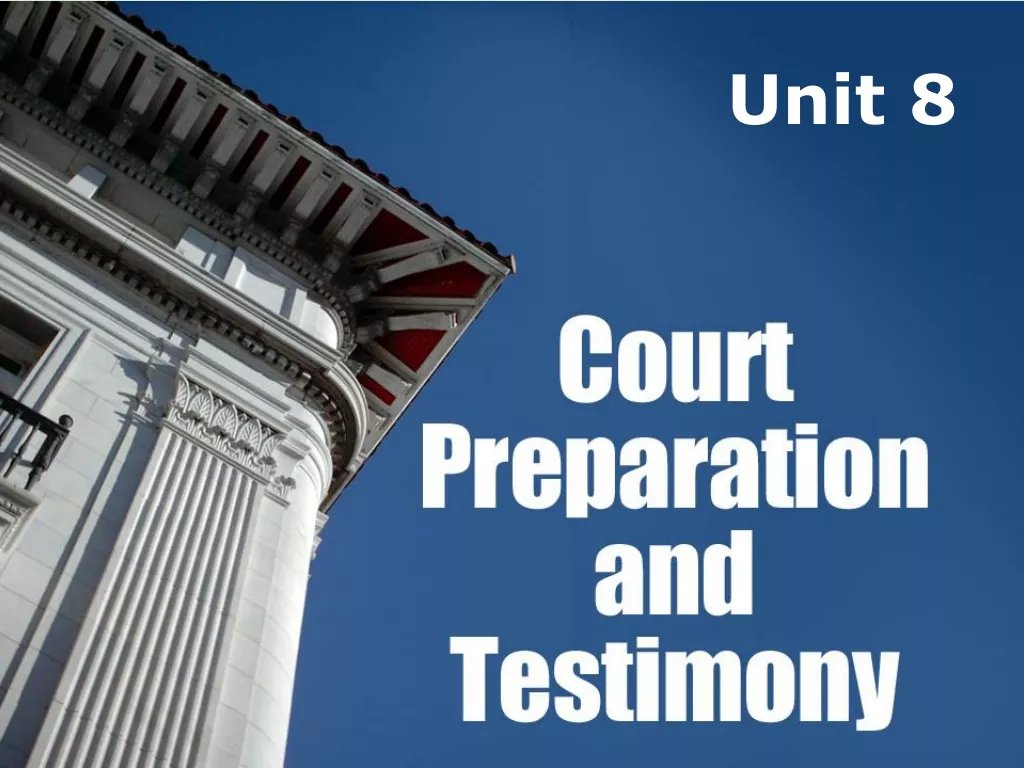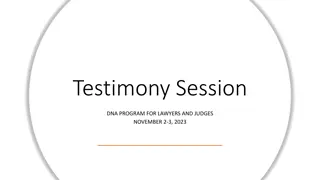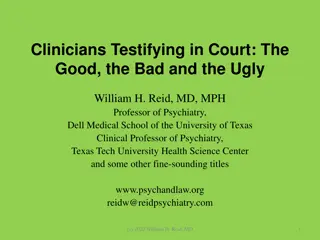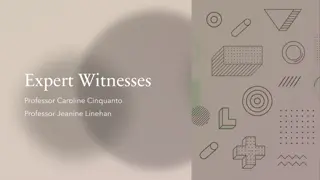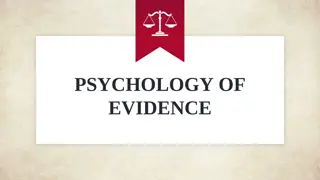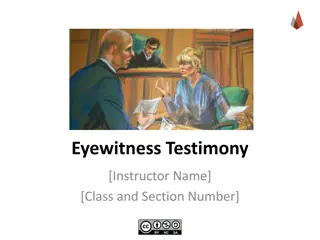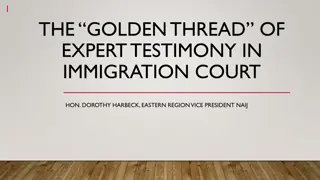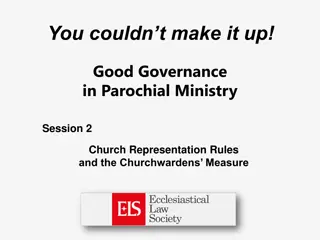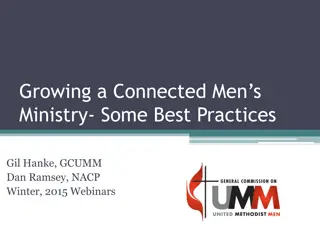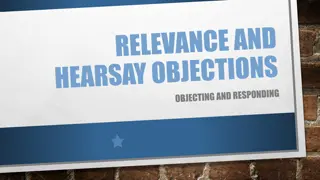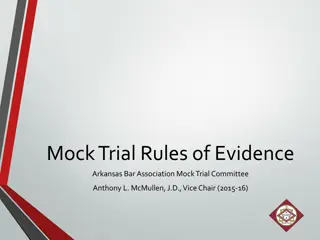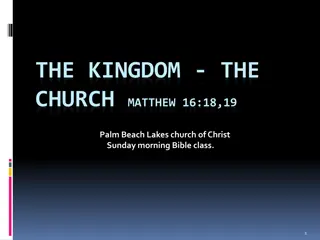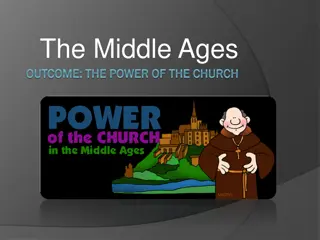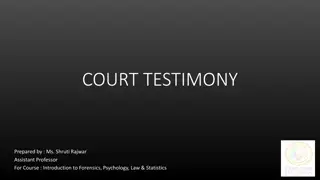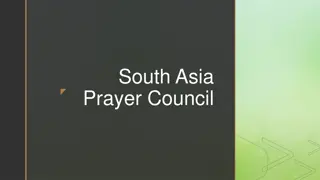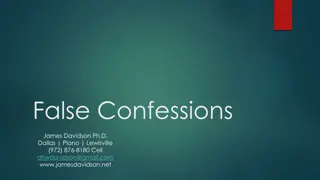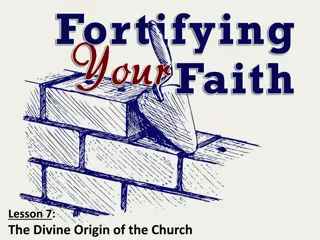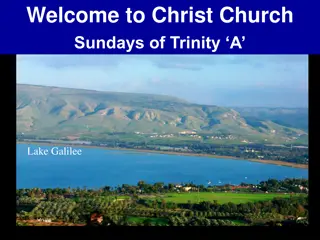Contemporary Testimony: The Need for Confessions in Today's Church
Exploring the importance of confessions in the church, this contemporary testimony emphasizes the relevance of declaring the faith to each generation. Highlighting the evolution of thought and the need to interpret the historic faith in light of modern experiences, it underscores the church's responsibility to continually restate its message. Through insights from Scripture, history, and prominent figures like Martin Luther and Lesslie Newbigin, the narrative showcases how confessions and creeds safeguard the gospel, enabling believers to grasp its significance in their lives.
Download Presentation

Please find below an Image/Link to download the presentation.
The content on the website is provided AS IS for your information and personal use only. It may not be sold, licensed, or shared on other websites without obtaining consent from the author.If you encounter any issues during the download, it is possible that the publisher has removed the file from their server.
You are allowed to download the files provided on this website for personal or commercial use, subject to the condition that they are used lawfully. All files are the property of their respective owners.
The content on the website is provided AS IS for your information and personal use only. It may not be sold, licensed, or shared on other websites without obtaining consent from the author.
E N D
Presentation Transcript
Confessing Our Faith Today Contemporary Testimony: Our World Belongs to God Michael Goheen
Starting Point: The gospel is the power of God to bring salvation.
The Need for Confessions Enable members to take hold of it in a living way Enable members to understand the meaning of the gospel for their lives today Protect the gospel against errors that threaten it
Confessions in Scripture and History The Lord, One God, The Lord, Our God (Deut. 6:4) Jesus is Lord (Rom.10:9; I Cor.12:3) Jesus is one substance with the Father (Early creeds) Reformed creeds of post-reformation period
Creeds in Scripture and history . . . Enabled people of God to take hold of faith in living way in their time Enabled people of God to understand what it meant to be people of God at that time Protected Biblical faith from error that threatened it
If you preach the gospel in all aspects with the exception of the issues which deal specifically with your time you are not preaching the gospel at all. - Martin Luther
Need for Contemporary Confessions The responsibility of the church [is] to declare to each generation what is the faith . . . This is always a fresh task in every generation, for thought is never still. The words in which the Church states its message in one generation have changed their meaning by the time the next has grown up. No verbal statement can be produced which relieves the Church of the responsibility continually to re-think and re- state its message.
Quote continued . . . . . . No appeal [to creeds and confessions] can alter the fact that the Church has to state in every new generation how it interprets the historic faith, and how it relates it to the new thought and experience of its time. . . Nothing can remove from the Church the responsibility for stating now what is the faith. It belongs to the essence of a living Church that it should be able and willing to do so - Lesslie Newbigin
Need for Contemporary Confession . . . it is not enough for the church to go on repeating in different cultural situations the same words and phrases. New ways have to be found of stating the essential Trinitarian faith, and for this the church in each new cultural situation has to go back to the original biblical sources of this faith in order to lay hold on it afresh and to state it afresh in contemporary terms - Lesslie Newbigin
Why? Enable church to take hold of faith today Enable church to understand what it means to follow Christ today Challenge current cultural idols that threaten faith today
Dominant spirit of our time The dominant spirit of our times has various names, such as secularism, atheism, humanism, or practical atheism. Together these forces form a real culturally formative power which restricts and opposes God s people as they try to live obediently in the world. If it takes a crisis to move the church to write confessional statements, these secular spirit of our times has moved us to write the Contemporary Testimony.
Why can the Contemporary Testimony do this? Narrative structure Missional emphasis Doxological tone Understandable language Counters contemporary threat(s) Important theological issues Current issues and relevant discipleship Reformed, Kuyperian accent
My Own Use Family worship First year biblical theology class Church Teaching series Catechetical training Profession of faith for new members
